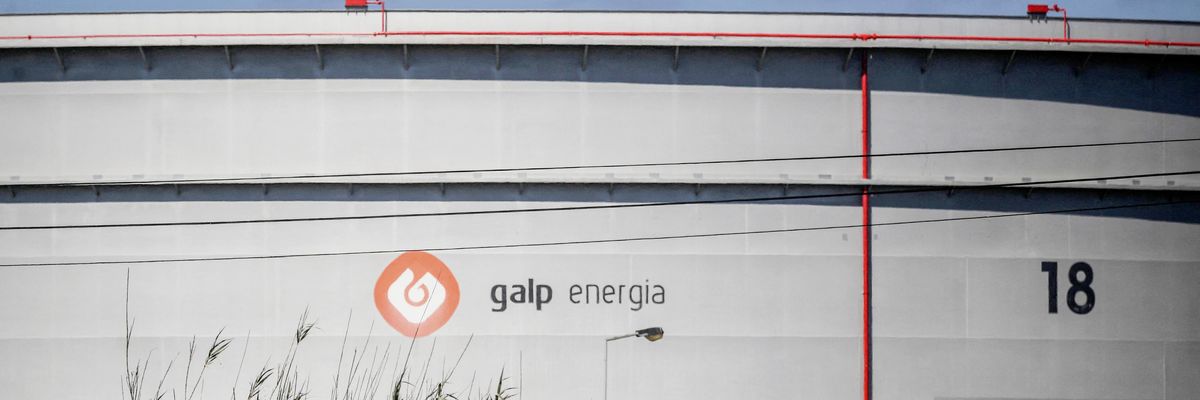Amidst the threat of nuclear war posed by the Russian invasion of Ukraine, which explicitly exposed Europe's dependence on oil and gas from Russia, one could expect that the smart solution would be to get away from fossil fuels and make massive investments in renewable infrastructure and production.
The war should have accelerated the transition to an economy moved fully by renewable energies. Yet, quite the contrary has happened. The European Commission proposes that investments in fossil, gas, and nuclear power are labeled "sustainable investments," understanding them as "transitional" energy sources.
"Fossil infrastructure is exactly why we are trapped in this crisis, and why capitalism will never be able to avoid climate collapse."
At the same time, European countries, in order to condemn Russia, are looking for fossil fuels elsewhere, shifting dependence to other countries, where gas and oil exploitation perpetuate colonial exploitation or support authoritarian regimes. Shifting from one authoritarian regime to another is not the solution, and neither is shifting from one kind of fossil fuel to another by using gas as a "transitional" energy source, nor by going back to coal.
In Europe's westernmost country, Portugal, the government sees this war and crisis as an opportunity, claiming that it "has the unique conditions to be a supply platform for Europe," talking about how the Port in Sines could be an entry point to supply Germany with the gas it needs. Particularly, gas from the USA and Nigeria could arrive in Sines and then be transported to other places in Europe. This would require the expansion of the LNG terminal in Sines and the construction of new gas pipelines in Portugal and Spain, to overcome the Pirenees. This is obviously a megalomaniacal plan, which doesn't mean it will not get the green light.
Fossil infrastructure is exactly why we are trapped in this crisis, and why capitalism will never be able to avoid climate collapse. If we take climate science seriously, no project that leads to an emissions increase could go forward. We need to cut 50% of global greenhouse gas emissions by 2030 compared to the 2010 emissions levels. Consequently, there can be absolutely no option on the table when it comes to new fossil projects and infrastructure. On the contrary, we need plans for just and fast transitions and the shutdown of existing infrastructure. That is not the plan in Portugal, in the EU or in the richest countries in the world, by a long stretch.
The "current global energy system is the largest network of infrastructure ever built, reflecting tens of trillions of dollars of assets and two centuries of technological evolution." Capitalists are very much aware that a transition informed by climate science and moved by a climate justice framework will completely shift current power relations, by making fossil assets worthless and stranded assets to be rid of. The fossil industry will block any real transition that can stop climate collapse. This is why capitalism will never produce the transition that we need. Capitalism constantly reproduces the conditions of a "carbon lock-in".
The war is being used as an excuse for multinational corporations, which take advantage of the increases in prices, to increase profits. This is the case of fossil and agribusiness corporations whose profits are rising while people are facing energy poverty and food insecurity.
"Allowing fossil corporations to further concentrate power and lock us further away from a real just energy transition means giving up on millions of human lives, particularly in the Global South."
Food and energy are essential goods. People's access to these essential resources cannot be left to the hand of the "market." There is the need for a systemic shift from an economy moved by profit to an economy moved by the wish to fulfill people's real needs and interests.
As so, in the scope of the Climate Action Camp 1.5, we will bring Just Transition inside Galp's oil refinery in Sines. This is the infrastructure in Portugal with the highest amount of greenhouse gas emissions. Galp is expected to be one of the main recipients of the European funds the government is getting for a Just Transition. Galp will secure a "just" transition for its own stakeholders rather than its workers, increasing its power over the energy sector in Portugal, diversifying its energy production sources with small stakes in solar and wind. At the same time, overseas it is expanding its energy production by developing fossil fuel concessions in Portugal's former colonies, namely Brazil, Angola, and Mozambique.
The current policies serve only the current status, serve only capitalist interests. This means not only that there is no energy transition happening, but there is an increase in structural inequalities. Allowing fossil corporations to further concentrate power and lock us further away from a real just energy transition means giving up on millions of human lives, particularly in the Global South.
We will not put up with such a level of injustice. There is no more time for hypocrisy nor for expanding the timeframe for real action, that is science fiction and lies. We demand a just and fast energy transition, guided by climate science, directed towards social justice, and led by workers and the local communities. This transition process holds Galp and its shareholders financially responsible for the costs of this transformation. On the 9th of July, the Portuguese climate justice movement will head to Galp's oil refinery to show Galp what a real just transition plan looks like.
That is the actual anti-war plan that can tackle the energy crisis and energy poverty while contributing to energy sovereignty and mitigating climate change.
We have a planet to win and no time to waste.




